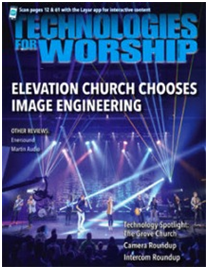“A Piece of My Mind”
May, 2017 Newsletter

Advancing Christian Faith and Values,
Defending Religious Liberty for All,
Supporting Civility and the Common Good
through Preaching, Teaching, Writing,
Activism and Reasoned Conversations
What Do Cornel West and Robert P. George Have in Common?
 |
West is a self-described “radical democrat” who supported Bernie Sanders. George is a prominent conservative intellectual.Both are academics (Harvard and Princeton, respectively). But they have more in common than that. Both are committed to Free Speech; both oppose silencing Free Speech on campuses! Read on… |  |
Truth Seeking, Democracy, and Freedom of Thought and Expression – A Statement by Robert P. George and Cornel West
March 14, 2017
The pursuit of knowledge and the maintenance of a free and democratic society require the cultivation and practice of the virtues of intellectual humility, openness of mind, and, above all, love of truth. These virtues will manifest themselves and be strengthened by one’s willingness to listen attentively and respectfully to intelligent people who challenge one’s beliefs and who represent causes one disagrees with and points of view one does not share.
That’s why all of us should seek respectfully to engage with people who challenge our views. And we should oppose efforts to silence those with whom we disagree—especially on college and university campuses. As John Stuart Mill taught, a recognition of the possibility that we may be in error is a good reason to listen to and honestly consider—and not merely to tolerate grudgingly—points of view that we do not share, and even perspectives that we find shocking or scandalous. What’s more, as Mill noted, even if one happens to be right about this or that disputed matter, seriously and respectfully engaging people who disagree will deepen one’s understanding of the truth and sharpen one’s ability to defend it.
None of us is infallible. Whether you are a person of the left, the right, or the center, there are reasonable people of goodwill who do not share your fundamental convictions. This does not mean that all opinions are equally valid or that all speakers are equally worth listening to. It certainly does not mean that there is no truth to be discovered. Nor does it mean that you are necessarily wrong. But they are not necessarily wrong either. So someone who has not fallen into the idolatry of worshiping his or her own opinions and loving them above truth itself will want to listen to people who see things differently in order to learn what considerations—evidence, reasons, arguments—led them to a place different from where one happens, at least for now, to find oneself.
All of us should be willing—even eager—to engage with anyone who is prepared to do business in the currency of truth-seeking discourse by offering reasons, marshaling evidence, and making arguments. The more important the subject under discussion, the more willing we should be to listen and engage—especially if the person with whom we are in conversation will challenge our deeply held—even our most cherished and identity-forming—beliefs.
It is all-too-common these days for people to try to immunize from criticism opinions that happen to be dominant in their particular communities. Sometimes this is done by questioning the motives and thus stigmatizing those who dissent from prevailing opinions; or by disrupting their presentations; or by demanding that they be excluded from campus or, if they have already been invited, disinvited.
Sometimes students and faculty members turn their backs on speakers whose opinions they don’t like or simply walk out and refuse to listen to those whose convictions offend their values. Of course, the right to peacefully protest, including on campuses, is sacrosanct. But before exercising that right, each of us should ask: Might it not be better to listen respectfully and try to learn from a speaker with whom I disagree? Might it better serve the cause of truth-seeking to engage the speaker in frank civil discussion?
Our willingness to listen to and respectfully engage those with whom we disagree (especially about matters of profound importance) contributes vitally to the maintenance of a milieu in which people feel free to speak their minds, consider unpopular positions, and explore lines of argument that may undercut established ways of thinking. Such an ethos protects us against dogmatism and groupthink, both of which are toxic to the health of academic communities and to the functioning of democracies.
Cornel West is Professor of the Practice of Public Philosophy in the Divinity School and the Department of African and African- American Studies at Harvard University.
Robert P. George is McCormick Professor of Jurisprudence and Director of the James Madison Program in American Ideals and Institutions at Princeton University.
Bible Insight –
The Meaning of Jesus’ Ascension
By Donald P. Shoemaker
 And [Jesus] led them out as far as Bethany, and lifting up his hands he blessed them. While he blessed them, he parted from them and was carried up into heaven. – Luke 24:50-51 (English Standard Version)
And [Jesus] led them out as far as Bethany, and lifting up his hands he blessed them. While he blessed them, he parted from them and was carried up into heaven. – Luke 24:50-51 (English Standard Version)
So when they had come together, they asked him, “Lord, will you at this time restore the kingdom to Israel?” He said to them, “It is not for you to know times or seasons that the Father has fixed by his own authority. But you will receive power when the Holy Spirit has come upon you, and you will be my witnesses in Jerusalem and in all Judea and Samaria, and to the end of the earth.” And when he had said these things, as they were looking on, he was lifted up, and a cloud took him out of their sight. – Acts 1:6-9
“He suffered and was buried; and the third day He rose again, according to the Scriptures; and ascended into heaven, and sits on the right hand of the Father; and He shall come again, with glory, to judge the living and the dead…”
– The Nicene Creed (325 AD)
The “Ascension of Jesus” is the back book cover to Jesus’ earthly life. While Good Friday and Easter are big days for most Christians as we remember the death and resurrection of Jesus, Ascension Sunday*** gets little or no attention in many Evangelical churches. Odd.
Yet the Ascension is clearly taught in the Bible and has great significance.
In his “ascension” Jesus, having completed his earthly tasks, left earth and his followers and entered the dimension of “Heaven” at the right hand of God the Father. There he assumed the glory and tasks befitting the Ascended Lord.
As to artistic and laypeople’s impressions, your guess is as good as mine on what it looked like when Jesus ascended. The biblical material is incredibly conservative and cautious in what it conveys.
Here are some features of this event:
1. Jesus ascended into Heaven where he took his place at the right hand of God. Here he offers sympathetic intercessory prayer for all who believe in him.
“Christ Jesus is the one who died—more than that, who was raised—who is at the right hand of God and indeed is interceding for us.” (Romans 8:34)
As our “high priest who has passed through the heavens” he is fully able to sympathize with us in our weaknesses. He knows from experience the power of temptation. So we can confidently “draw near to the throne of grace” and “find grace to help in time of need.” (Hebrews 4:14-16)
2. Jesus ascended into Heaven so he might be exalted as Lord of all that is in heaven and on earth—the “Lord” whom we are to confess.
Jesus “has gone into heaven and is at the right hand of God, with angels, authorities, and powers having been subjected to him.” (1 Peter 3:22)
“He humbled himself by becoming obedient to the point of death, even death on a cross. Therefore God has highly exalted him and bestowed on him the name that is above every name, so that at the name of Jesus every knee should bow…” (Philippians 2:8-10)
3. Jesus ascended into Heaven to pour out his Holy Spirit upon his followers.
“Exalted at the right hand of God, and having received from the Father the promise of the Holy Spirit, he has poured out this that you yourselves are seeing and hearing.” (Acts 2:33)
4. Jesus ascended into Heaven to give gifts of leadership and empowerment to his followers, for the spiritual benefit of his Church.
“When he ascended on high…he gave gifts to men… And he gave the apostles…the prophets…the evangelists…and the shepherds [pastors] and teachers, to equip the saints for the work of ministry, for building up the body of Christ…” (Ephesians 4:8, 11-12)
5. Jesus ascended into Heaven, from where he will return to earth in glory, to judge us all and rule as King of kings.
“This Jesus, who was taken up from you into heaven, will come in the same way as you saw him go into heaven.” (Acts 1:11)
“I charge you in the presence of God and of Christ Jesus, who is to judge the living and the dead, and by his appearing and his kingdom: preach the word…” (2 Timothy 4:1-2)
Jesus was faithful and obedient to his Father in throughout his earthly life and is now enthroned in Heaven. He is our example of steadfast obedience through great difficulties. “Let us run with endurance the race that is set us, looking to Jesus…who for the joy that was set before him endured the cross, despising the shame, and is seated at the right hand of the throne of God. Consider him who endured from sinners such hostility against himself, so that you may not grow weary or fainthearted.” (Hebrews 12:2-3)
* * *
*** Ascension Thursday falls 40 days after Easter, reflecting Jesus’ 40 days on earth between his resurrection and ascension (Acts 1:3). Ascension Sunday is the following Sunday. In 2017, Ascension Thursday is May 25 and Ascension Sunday is May 28.
Ascension Sunday is a day for majestic singing! Great Ascension Songs:
“Crown Him with Many Crowns”
“Look Ye Saints, the Sight is Glorious; See the Man of Sorrows Now!”
“Rejoice, the Lord is King”
“Majesty”
“All Hail the Power of Jesus’ Name”
“A Hymn of Glory Let Us Sing” (The Venerable Bede, 8th Century)
If you want to be creative, sing the words of Charles Wesley’s “Hail the Day that Sees Him Rise” to the tune EASTER HYMN which churches use to sing “Christ the Lord Is Risen Today.”
Message of the Month (Part 2) —Are We Called to be “The  Church of the Immediate Moment”?
Church of the Immediate Moment”?
In the April Newsletter I took exception to the idea that contemporary worship should include only what is very recent and trendy. In this column I will talk about when that philosophy is appropriate and when it is not.
“Youth For Christ” had a huge impact on my life when I was a teenager. The main YFC event was the Saturday night “rally” in a school auditorium. Most of the snazzy event took place on the platform—those who attended were the “audience.” Everything, especially the music, was geared to teens, whether they were Christians or possible prospects to becoming Christian (we were always encouraged to invite our high school friends).
In other words, this was an evangelistic event, and every feature of it was planned to impact a specific demographic group in a contemporary way.
But here is the key: Never would we have thought that this “targeted outreach” was “church” for us, or that it replaced “church” for us.
No, “church” happened the next morning. There we found ourselves in a much more pluralistic context. The service didn’t cater to any one group.
Nor should it. To be biblical about it, “church” is where diversity happens: ethnic, social, gender, age, economic, educational diversity, and more.
And “church” also has diverse levels of spiritual growth, passions, priorities, and spiritual abilities (see 1 Corinthians 12). There may be exceptions to this diversity, especially when the church is in a community without it. Military, college and retirement communities are examples that come to mind.
What does this have to do with our worship, music and singing? Much! At the youth evangelistic meeting the music, verbal and instrumental, should be contemporary, carefully planned, rehearsed, and performed. But in the worship gathering of the church the music, verbal and instrumental, should be varied and very congregational*** (hence, not performed but engaging the people, with songs generally known to them). The focus is primarily the worship of God and building up of believers rather than evangelistic outreach.
Contemporary songs have their role to play in the church gathering. So do songs long established in the church that have ministered to people over decades.
One elderly brother in my church remembers the fearful days of World War II. His coastal community in Nova Scotia, with its ideal harbor, knew what it was to have German U-boats (submarines) waiting off the coast and ready to pounce on shipping like flies over fresh meat. Hardly anyone in the region didn’t know someone who had died because of a German torpedo.
For this brother, God was Strong Protector and Comforter. A chorus that sustained many in those fearful days will always minister him to:
God is still on the throne,
And he will remember his own;
His promise is true,
He will not forget you,
God is still on the throne.
Lyrics and Music by Kittie L. Suffield (1929)
Christian congregations must minister to those with songs of this era and style as much as they also reach to those other categories of people we talk about: baby boomers, Gen. X, and Gen. Y (Millennials). (If I missed Gen. Z, was it because they sleep in on Sundays?)
I conclude with a dictum I wrote in “Part 1” of this 2-part series:
Growth as disciples of Jesus leads all of us to move outside our immediate comfort zones and preferences and learn from others. This includes the voices and heritage of earlier generations and today’s generations.
“The Church of the Immediate Moment” misses this heritage and the vital spiritual cross-pollination it brings, and is all the poorer for it.
*** Through my pastoral years I led the worship committee. We strove to emphasize congregational participation in worship and to avoid ever thinking of the people as the “audience.” One who used the “A” word at a committee meeting paid everyone else 25c.
 Religious Liberty Vigilance – Get the Government out of the Bathroom!
Religious Liberty Vigilance – Get the Government out of the Bathroom!
“Congress shall make no law respecting an establishment of religion, or prohibiting the free exercise thereof, or abridging the freedom of speech, or of the press; or the right of the people peaceably to assemble, and to petition the Government for a redress of grievances.” – 1st Amendment
During the 2016 election campaign, the Libertarian Party advertised that it stayed out of your wallet and out of your bedroom. California’s state government keeps digging deeper and deeper into our purses and wallets, but it does stay out of our bedrooms. But look out! It has just entered our bathrooms—at least public restrooms!
 A new law (AB1732) took effect in California on March 1, 2017.
A new law (AB1732) took effect in California on March 1, 2017.
“All single-user toilet facilities in any business establishment, place of public accommodation, or state or local government agency shall be identified as all-gender toilet facilities by signage…”
What issues does this law create? Before listing some, I note that most of the opposition to this law during legislative debate was not because of religious convictions, but out of concern for cleanliness and good hygiene. Most women, for example, would prefer to use their own restroom at their Bible study rather than one used by the junior high boys during their game night.
First, concern from a secular standpoint: this law is another example of government intrusion and meddlesomeness. Issues like this should be between management, their employees, and their customers.
Second, enforcement of the new requirement: who will enforce the law? Answer: inspectors, building officials, and other local code enforcers will check for compliance on this issue. So, instead of inspections for legitimate safety issues, the local official becomes a member of the “Ideological Police.”
Third, churches and religious organizations are not necessarily exempt. Are churches places of “public accommodation”? Many say yes; many say no. Some states (recently Iowa and Massachusetts) have claimed that some church gatherings, like dinners, are “public accommodation” events. There has been enough pushback on this that proponents of this way of thinking have relented for now. But it must be closely watched.
Churches must be exempt from this law because how they designate restrooms should be based on their ministry needs and how they feel attendees are best served. Where ideology is involved (in this case, the religious doctrines on humanity and human sexuality), churches must follow their own religious ideals, not those of the government.
But there’s more concern. If churches are places of “public accommodation,” then other rules apply. A person must be free of “harassment” in places of “public accommodation”—no harassment by staff (read: sermons by preachers and lessons by teachers), or even customers (read: church members and attendees). All of a church’s restrooms must be accessible to people based on their gender identity. A church that harasses or denies access by these rules faces legal action because of discrimination.
Churches MUST NOT be viewed as places of public accommodation. Churches MUST BE FREE to define human sexuality by their own religious doctrines. Churches MUST REFUSE to comply with government mandates that violate their beliefs.
Public accommodation laws are well-intentioned; their goal is to ensure that all citizens have equal standing in society and public life. But these laws should not infringe on freedom of conscience. Therefore, churches should not be considered places of public accommodation…
Churches are physical embodiments of religious convictions… The First Amendment protects church autonomy from state intrusion by means of a “wall of separation.”
– “Churches are not places of public accommodation”
by Caleb Wolanek, Harvard Journal on Line, November 28, 2016)
 Don’s Upcoming Ministries
Don’s Upcoming Ministries
June 4 – Pentecost Sunday – Speak on the meaning of Pentecost (Acts of the Apostles, chapter 2) at Grace Community Church of Seal Beach’s Sunday morning worship services (8:00, 9:30 and 11:00). Lead a “Communion Service” in the tradition of the first Christians who broke bread together.
July 25-27 – Attend the annual conference of the Fellowship of Grace Brethren Churches, meeting in Fremont, Ohio. Present resolutions to the delegates as Chair of the Social Concerns Committee. Participate with the military chaplains as Associate Military Endorsing Agent.
July 30 – Speak at Sunday Morning Worship Services at Grace Community Church of Seal Beach.
Mother’s Day 2017
“The Virtuous Mother”
She looks well to the ways of her household?
and does not eat the bread of idleness.
Her children rise up and call her blessed;?
her husband also, and he praises her:
“Many women have done excellently,?
but you surpass them all.”
Charm is deceitful, and beauty is vain,?
but a woman who fears the Lord is to be praised.
– Proverbs 31:27-30 (ESV)
Website: www.donaldshoemakerministries.com
Contact me at: donaldshoemakerministries@verizon.net


